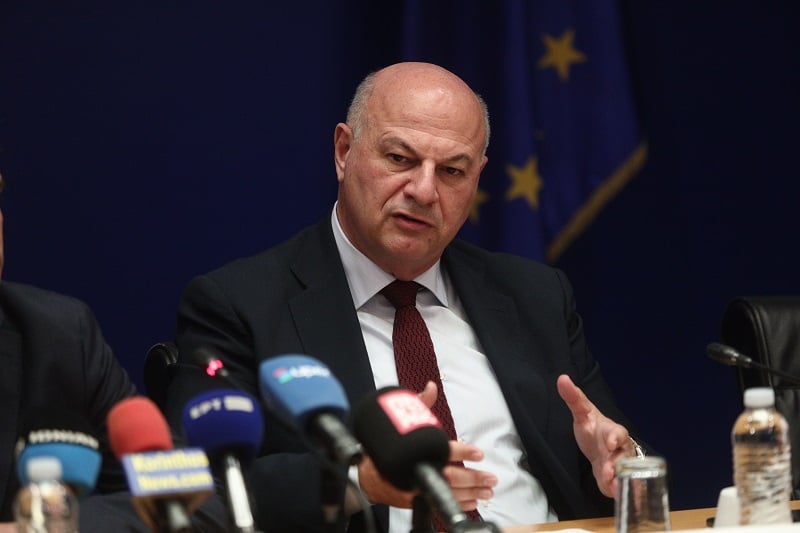‘Would lead to serious inequalities between Member States’
Greece’s refusal to any scenario of compulsory national funding of the Common Agricultural Policy after 2027 was expressed by the Minister of Rural Development and Food, Costas Tsiaras by the Council of Ministers of Agriculture & Fisheries in Brussels.
“Such a choice would lead to serious inequalities between Member States and undermine the single nature of the CAP,” Mr Tsiaras said, saying that the national position is that “we want a CAP strong, with a sufficient budget, without re -nationalization, that will keep the countryside alive and will guarantee the countryside”.
He recognized as positive the proposals of the European Commission to support protein crops, the best organization of sectoral interventions and the Union program for schools, which links healthy eating with the support of small producers.
The Minister of Rural Development and Food stressed that the simplification of common fishing policy is a prerequisite for becoming more functional and close to the real needs of the industry. According to him, our country is already applying digital tools to licensing and electronic catastrophe, but warned that measures such as satellite monitoring of very small boats create a disproportionate cost, without real benefit.
He called for many years to rely on reliable scientific data and to adapt to the realities of the small coastal fishing, “the backbone of the Greek fleet and the support of the island communities”. Particularly referred to the overfishing of fishermen by third countries and the Greek protected marine areas.
Concerning the African plague of the pigs, the Greek minister expressed the solidarity of Greece to Estonia and the Member States affected by the African Pigs of pigs, underlining the serious effects of the disease on pork production, food safety. By connecting Greece’s experience with the epizopia of blessing in sheep and goats, he highlighted the burden of producers and local communities.
Regarding the release rule in the CAP strategic plans, the minister emphasized that investments in rural development are long -term and take more time, especially at a time when farmers are tested by war in Ukraine, energy crisis and natural disasters.
As he said, supporting the proposal to return to the N+3 release rule (instead of N+2), such a change “will give the Member States the necessary flexibility, allow for better utilization of available resources and enhance the effectiveness of the CAP strategic plans”.
Finally, as the YPATA points out in a statement, Mr Tsiaras jointly chaired with Finnish Minister Sari Essaya at the European People’s Party (EPP) preparatory meeting, which was held by Commissioner for Agriculture and Food. At the heart of the discussions was the multiannual budgetary framework (MFF), with ministers reaffirming the fundamental importance of common agricultural policy (CAP) for food safety, economic durability and competitiveness, high standards, environmental sustainability and protection.
Finally, adequate funding, based on a strong European policy, is critical to ensuring EU strategic interests in food production and also emphasized the need to protect farmers’ incomes, with immediate aid remaining the cornerstone of the stability of the stability of the industry.
